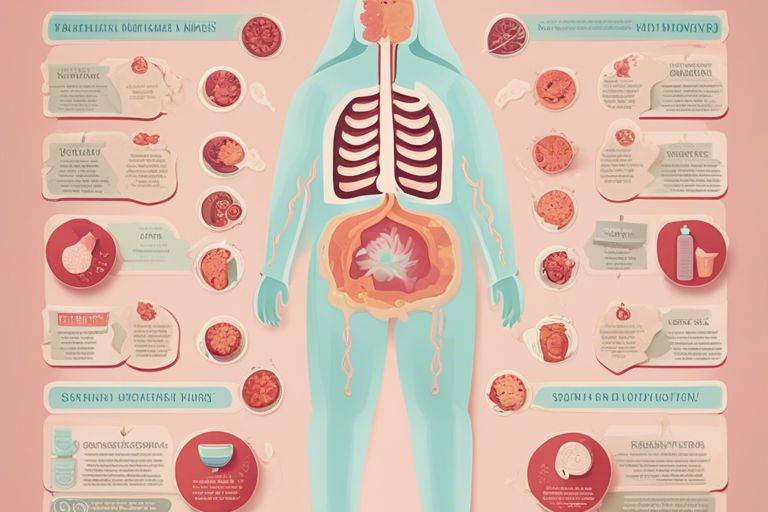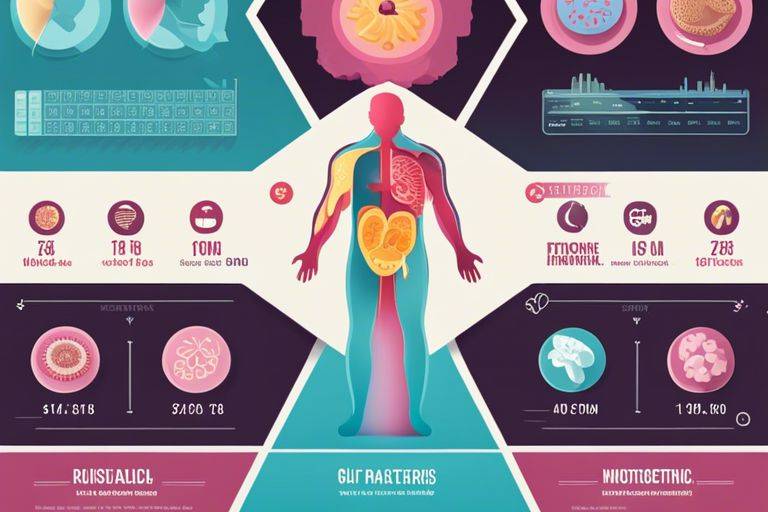With all the information out there about gut health, it’s easy to get overwhelmed and confused. That’s why I want to set the record straight and debunk some common myths surrounding this crucial aspect of your well-being. From the dangers of fad diets to the benefits of probiotics, I will guide you through what you should really know to take care of your gut health.
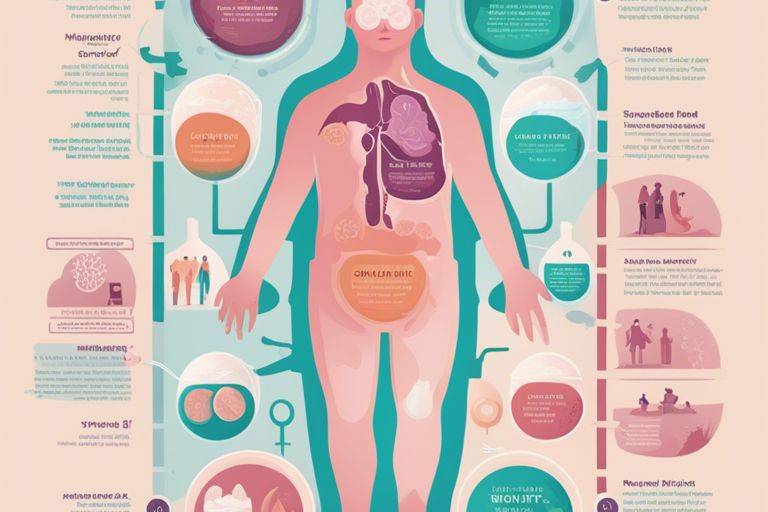
Key Takeaways:
- Gut health is more than just digestion: It plays a crucial role in our overall health and well-being, impacting everything from our immune system to our mental health.
- Probiotics are important, but not a cure-all: While probiotics can support gut health, they are not a one-size-fits-all solution and may vary in effectiveness from person to person.
- Diet is key: A balanced diet rich in fiber, fruits, and vegetables is imperative for gut health, as it helps promote the growth of beneficial gut bacteria.
- Gut health is individualized: What works for one person may not work for another, so it’s important to pay attention to your body’s cues and find a gut health routine that works for you.
- Stress can impact gut health: High levels of stress can disrupt the balance of bacteria in the gut, so managing stress is crucial for overall gut health.
- Medication can affect gut health: Certain medications, such as antibiotics, can disrupt the balance of gut bacteria, highlighting the importance of discussing gut health with healthcare providers when taking medications.
- Regular exercise benefits gut health: Physical activity has been shown to have a positive impact on gut health, so incorporating exercise into your routine can support a healthy gut.
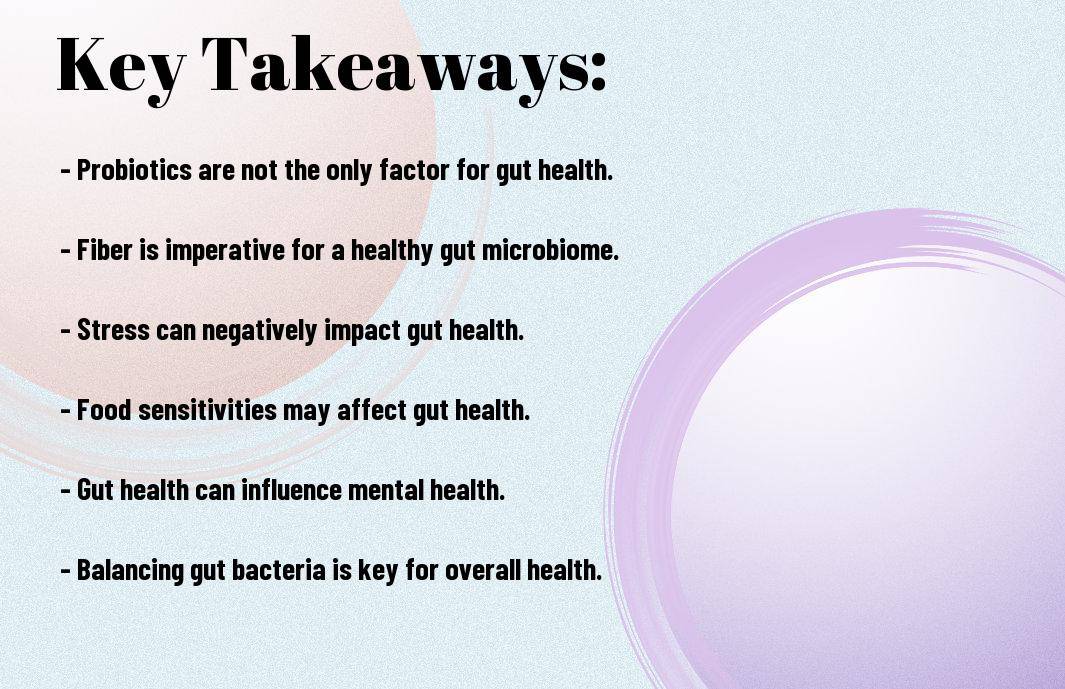
Separating Fact from Fiction
The Most Common Gut Health Myths
Fiction: One of the most common gut health myths is that all bacteria are bad for your gut. This is simply not true. Your gut is home to trillions of bacteria, both good and bad, which play crucial roles in digestion, immunity, and overall health. It’s vital to maintain a balance of these bacteria for optimal gut health.
Where These Myths Come From
Myths: Many misconceptions about gut health stem from misinformation spread by popular media, fad diets, and unverified claims from unreliable sources. Most people are not aware of the intricate ecosystem that exists in their gut and how various factors like diet, stress, and medications can affect it. It’s crucial to educate yourself with accurate information from reputable sources to make informed decisions about your gut health.
The Importance of Gut Health
Assuming you’ve read my previous post about the Most Common Myths About Gut Health, it’s crucial to understand the true importance of gut health. Your gut plays a significant role in your overall well-being, influencing everything from digestion to mood regulation and even immune function.
The Gut-Brain Connection
Importance of the gut-brain connection cannot be overstated. The gut and brain communicate bidirectionally, impacting emotions, cognitive function, and even behavior. A healthy gut can contribute to improved mental health and overall well-being.
The Role of Gut Bacteria in Our Overall Health
Gut bacteria play a pivotal role in our overall health, from aiding digestion to supporting the immune system. This thriving ecosystem of bacteria can influence weight management, inflammation levels, and even mental health. Ensuring a diverse and balanced gut microbiome is imperative for your well-being.
Debunking the Myths
Myth #1: Probiotics Are a Magic Bullet
The belief that probiotics are a cure-all solution for gut health is a common misconception. While probiotics can be beneficial for some individuals, they are not a one-size-fits-all solution. Your gut health is influenced by a variety of factors, including diet, lifestyle, and overall health.
Myth #2: Gut Health Is Only About Digestion
On the contrary, gut health extends far beyond just digestion. A healthy gut plays a crucial role in your immune system, mental health, and even skin conditions. Your gut is often referred to as your “second brain” due to its impact on various aspects of your overall well-being.
Myth #2: Gut Health Is Only About Digestion.
In the context of gut health, it’s imperative to recognize that the gut is a complex ecosystem that interacts with the rest of your body in intricate ways. A healthy gut microbiome can contribute to better nutrient absorption, hormone regulation, and inflammation reduction. Ignoring these aspects can lead to imbalances that may manifest in various health issues.
Myth #3: You Can Fix Gut Health with a Quick Fix
Any notion that you can quickly fix your gut health with a single solution is misleading. Achieving optimal gut health requires a holistic approach that includes a nutrient-dense diet, regular physical activity, stress management, and adequate sleep. Making sustainable lifestyle changes is key to supporting long-term gut health.
Quick fixes or fad diets may provide temporary relief, but they often fail to address the root cause of gut issues. Taking the time to nourish your gut with whole foods, fiber-rich fruits and vegetables, and fermented foods can promote a diverse and thriving gut microbiome, leading to lasting improvements in your overall health.
The Science Behind Gut Health
To debunk common myths about gut health, I investigated into the science behind it. If you’re curious to learn more, check out Debunking Common Myths About Gut Health.
The Gut Microbiome: A Complex Ecosystem
Science reveals that the gut microbiome is a complex ecosystem made up of trillions of microorganisms that play a crucial role in your overall health. Research shows that a diverse and balanced microbiome is necessary for proper digestion, immune function, and even mental health.
How Diet and Lifestyle Affect Gut Health
Affecting your gut health, diet, and lifestyle choices can impact the balance of good and bad bacteria in your gut. Consuming a diet rich in fiber, fruits, vegetables, and fermented foods can promote a healthy microbiome. Conversely, high sugar, processed food intake, stress, and lack of sleep can negatively impact gut health.
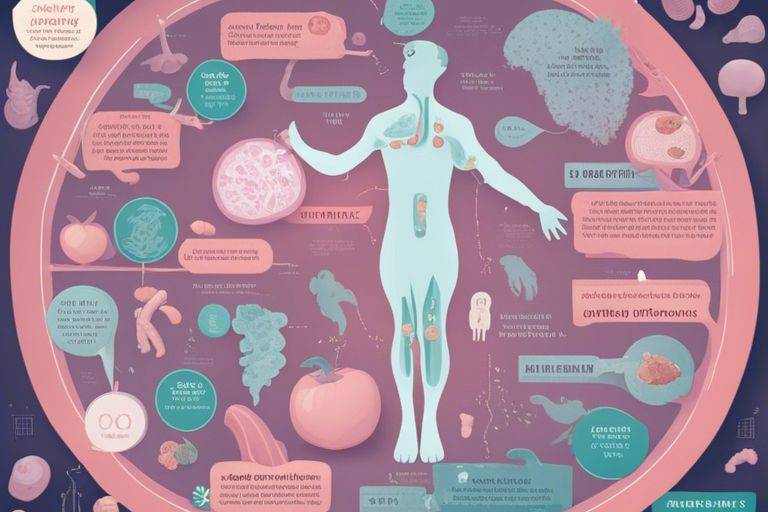
The Impact of Modern Life on Gut Health
The Effects of Processed Foods and Antibiotics
Now, the prevalence of processed foods and the overuse of antibiotics in modern society have a significant impact on our gut health. Processed foods lacking in imperative nutrients can disrupt the balance of good and bad bacteria in our digestive system. Additionally, antibiotics, while important for treating infections, can also destroy beneficial bacteria in the gut, leading to imbalances and potential health issues.
How Stress Affects Gut Health
To explore how stress can impact gut health, let’s consider the following. An individual’s mental and emotional well-being plays a crucial role in the health of their gut. When you experience chronic stress, the body’s stress response can affect the balance of bacteria in the gut, leading to inflammation and digestive issues.
Life is full of stressors that can disrupt the delicate balance of your gut microbiome. Chronic stress, whether from work, relationships, or other sources, can have a profound impact on your gut health. The imbalance of gut bacteria caused by stress can weaken your immune system, increase inflammation, and contribute to digestive problems.
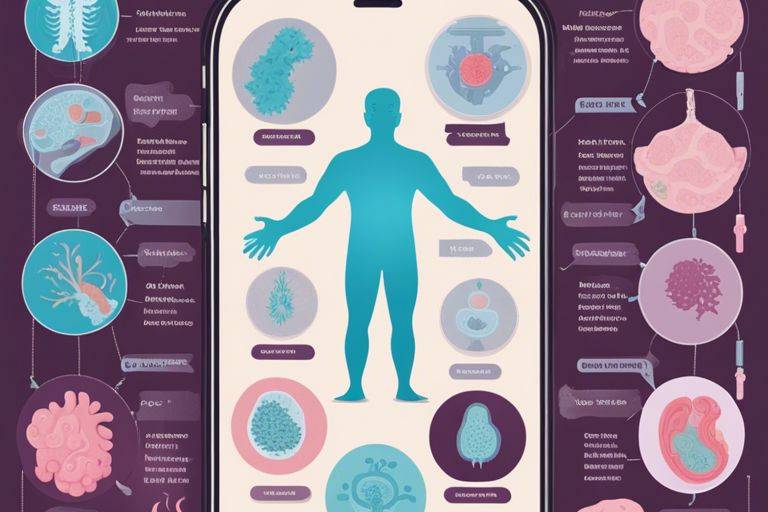
Taking Control of Your Gut Health
Not sure where to start when it comes to improving your gut health? Let me help you separate fact from fiction by checking out this Fact vs. Fiction: 6 Gut Health Myths Debunked article first.
Simple Changes to Improve Gut Health
Control the health of your gut by making simple changes to your diet, such as incorporating more fiber-rich fruits and vegetables, and reducing processed foods and sugars. These small adjustments can make a big difference in the balance of your gut microbiome, leading to better overall health.
The Importance of Listening to Your Body
Importance of listening to your body cannot be overstated. Your body has a way of telling you what it needs, so pay attention to digestive issues like bloating, gas, or irregular bowel movements. By tuning in to these cues, you can make informed decisions about your diet and lifestyle to support a healthier gut.
Changes in your gut health can have far-reaching effects on your overall well-being. By listening to your body and making small, positive changes, you can take control of your gut health and improve your quality of life in the long run.
Summing up
Hence, after debunking common myths about gut health, it is crucial to be aware of what truly matters for your digestive system. Remember to prioritize a balanced diet, stay hydrated, manage stress levels, and listen to your body’s signals to maintain a healthy gut. By understanding the facts and taking proactive steps, you can improve your overall well-being and enhance your digestive health.
Q: What is gut health?
A: Gut health refers to the balance of microorganisms that live in the digestive tract. These microorganisms play a crucial role in digestion, immunity, and overall health.
Q: What are some common myths about gut health?
A: Common myths about gut health include the idea that all bacteria are harmful, that probiotics are the only way to improve gut health, and that gut health only affects digestion.
Q: How does diet affect gut health?
A: Diet plays a significant role in gut health. Eating a diet high in fiber and variety of fruits and vegetables can promote a healthy balance of gut bacteria.
Q: Can stress impact gut health?
A: Yes, stress can impact gut health. Chronic stress can disrupt the balance of gut bacteria and lead to digestive issues.
Q: Are probiotics the only way to improve gut health?
A: While probiotics can be beneficial for some people, they are not the only way to improve gut health. Eating a balanced diet, reducing stress, and getting regular exercise can also support gut health.
Q: How does gut health affect overall health?
A: Gut health is closely linked to overall health. An imbalance of gut bacteria has been linked to a range of health issues, including digestive disorders, autoimmune conditions, and mental health disorders.
Q: What are some signs of poor gut health?
A: Signs of poor gut health can include bloating, gas, constipation, diarrhea, fatigue, and mood changes. If you are experiencing persistent digestive issues, it may be a sign of an imbalance in your gut bacteria.
